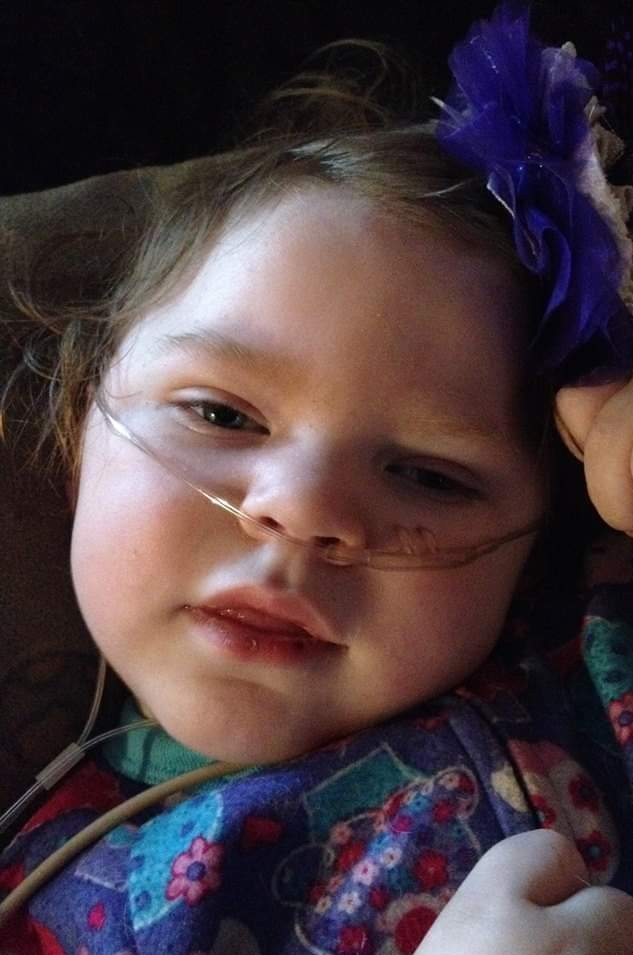8 Tips for a Grieving Mother, From a Grieving Mother
In March 2019, our family was turned upside down when my youngest succumbed to Krabbe Disease after seven years of fighting. Everything changed, including how we were treated by friends. They didn’t know what to say or do, especially when they were face to face with me, the mother. I can’t say I blame people for being awkward; a child passing away goes against nature. No parent should have to say a final goodbye to their child.
It has been a few months. I’m still crying every night (it’s so quiet with my older kids all asleep, no life support machines and no whines from Odin for one more story or one more round of video games), but during the day things are getting back to normal.
In fact, this is the first thing I’ve been able to sit down and write. I’ve chosen this subject to help people who don’t know what to do for their loved one.
Here’s how you can help a grieving mother:
1. Say the right things.
Nothing you can say will make anything better. It’s all going to go in one ear and out the other. After a while, we get tired of hearing “I’m sorry.” Phrases like “your baby is in a better place,” or “God has a plan” can really wreck a mother, especially if she’s not religious. They may sound comforting to you, but as anger builds after the loss, all a mom can think is, “I had plans and the best place for my baby is in my arms, not in heaven.”
So what can you say? “I’m here for you” is a good place to start.
2. Actions speak louder than words.
Bring meals and clean. Take the surviving child(ren) out for a day on the town, unless she can’t be separated from the surviving child. (When my Odin passed away, I couldn’t be more than two feet from my kids. The new school year starting was a nightmare for me). Don’t ask if she “needs” anything, because she’s going to lie — just do it. We’re conditioned to say we’ve “got it,” even if we don’t.
3. Help her with funeral/burial/cremation plans.
Help pick out the baby’s final outfit. It was a huge blessing to have my son’s nurse with us as we sat down with the funeral home. She was the beacon of support and love that I needed.
4. Gift baskets are amazing.
Throw in some wine, lots of snacks (grief eating is a real thing — I’m still doing it), things to help her decompress like coloring books and movies, cooling eye masks (because all of that crying hurts the eyes quite a bit), a journal, coping tools (I eat tic tacs when I’m anxious) and other odds and ends you think she’ll like. Don’t forget tissues.
5. Most importantly, be there.
While a person’s voice may bounce around in the cave where our mind and sanity used to be, your presence will be seen. Be a shoulder to cry on. Don’t try to fix it; just go through it with her. While you are there, remember that her pain is the biggest thing in the room.
I realize the death is hurting you too, and that’s OK, but it hurts her more because it was her baby. I lost it and slapped a person for saying how much Odin’s death hurt them. I’m not proud of it; I was ticked and in the angry stage of grief (I apologized a few weeks later). You won’t believe how many people disappear when a child dies — I was flabbergasted at how quickly I found myself alone. Your being there will really count.
6. Watch her.
Talk to her about therapy when she is ready. Tell her there are grief groups on Facebook that are wonderful. I joined one the day after Odin passed, but wasn’t ready for it so I muted it until I was able to be there. The Facebook grief groups are not a replacement for actual therapy, but they are a good way to start getting help from mothers who know that pain.
She may need medication, she may disassociate frequently or she may have flashbacks. It is normal for all of this to occur, but it will probably scare her. Just hold her hand and remind her that it’s OK for all of it to happen. On the same note, encourage her to enroll her surviving children in therapy; they’re probably going to need it, too.
7. Help ease the silence.
The house will be very quiet without that child being there, even if there are surviving children. The silence is unnerving; it hurts. Make sure her streaming service or music accounts are paid. Netflix filled the silence, so it didn’t hurt as much for me. It was still painful, but it was nice having “The Walking Dead” playing in the background.
8. Let them talk about their child.
Go through photos with her. Let her remember her child and cherish the memories with her.

Remember there are different stages of grief, and sometimes they are not pretty. A person can also skip around the stages; they don’t necessarily go in order.
I hope these help you support a mom as she journeys down this path.
Getty image via Ponomariova_Maria.

